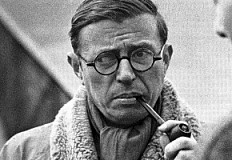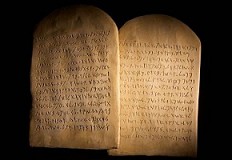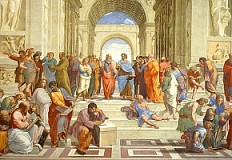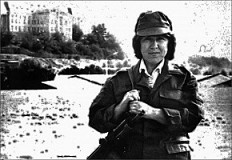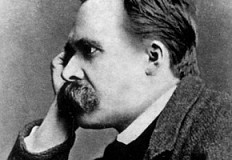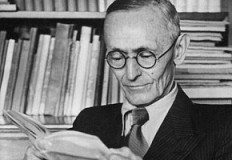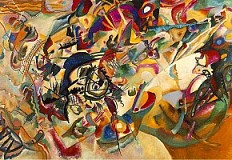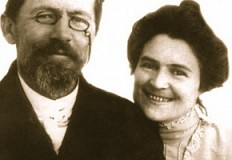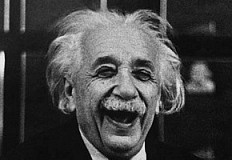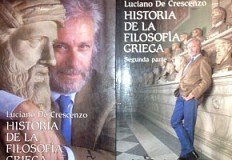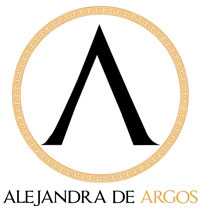BOOKS, MUSIC...
-
Many are the creators who, throughout history, have believed they saw the origins of creativity, or at least some of its requirements, in good health and a feeling of wholeness. But neither are they few those who found the best stimuli for their creations to be suffering and sickness. Some seem to heed Horace’s advice to "delight and instruct" Many are the creators who, throughout history, have believed they saw the origins of creativity, or at least some of its requirements, in good health and a feeling of wholeness. But neither are they few those who found the best stimuli for their cr...
-
Jean-Paul Sartre, the father of existentialism, argued that man lacks essence and is condemned to be free. Jean-Paul Sartre was a man of many parts: philosopher, novelist, playwright, literary critic and political agitator. But he was, above all else, someone who made the absolute most of a life that was intense. Jean-Paul Sartre Jean-Paul Sartre, the father of existentialism, argued that man lacks essence and is condemned to be free. Jean-Paul Sartre was a man of many parts: philosopher, novelist, playwright, literary critic and political agitator. But he was, above all else, someone ...
-
Leïla Slimani, born in 1981, is a French-Morrocan author and the 2016 winner of France's most prestigious award for literature, The Goncourt Prize, for her second novel, "Lullaby". In a distinctly French style, with a tone reminiscent of her compatriot Emmanuel Carrère, Slimani narrates, with both lightning rhythm and a sluggishness typical of day-to-day routine, a dizzying plot that leaves the reader in the uncomfortable position of being able to identify with these easily-relatable incidents. The reading of the novel is accelerated by the flow of her narrative in its search for what is hidde...
-
Both among those who, by reason of their religion and culture, consider themselves to be Jews and for those living as Jews whilst also considering themselves an integral part of the secular and cosmoplitan mindset prevalent today, the question of a Jewish identity and the main issues involved in defining it is a recurrent one: for instance, the Jewish take on history and time, Jewish persepectives as regards individuality and collectivity, and, of course, anti-Semitism to name but a few. With the sole aim of contributing to the dialogue this type of reflection invites, I would dare to posit th...
-
It is highly likely that, for many people, philosophy ultimately amounts to nothing more than an ambiguous word, used as it is in very varied contexts to refer to different things. As a common linguistic expression, the word "philosophy" doesn't have a precise substance to it and nor does it allow for a generally accepted or acceptable brief definition. We hear repeatedly about the philosophy of an electoral programme in politics or the philosophy of a marketing strategy for a product in the fields of commerce or industry. We also hear it said, in our everyday language, that it is best to look...
-
"The most intelligent and most important poet our country has produced this century has died, in hospital in Rome, as a result of the burns she suffered, apparently, at home in her bath according to the Italian authorities' investigations. I have travelled with her and during our travels, she shared many of her philosophical opinions as well as her concerns about the way the world was heading and about the course of history, both of which frightened her throughout her whole life." With these words, Thomas Bernhard summed up the death of his dear friend, Ingeborg Bachmann. Bachmann died on t...
-
Author: Maira Herrero,
MA in Philosophy.Photo from the archives of Svetlana Alexievich
Svetlana Alexievich (1948, The Ukraine) was last year’s winner of the Nobel Prize for Literature on one of the very few occasions it has been awarded for a work of non-fiction or in her native language, Russian. Only Theodor Mommsen, Winston Churchill and Solzhenitsyn have ever been likewise honoured for historical research in prose.
Front covers of the English and Spanish translations of Svetlana Alexievich’s Nobel Prize-winning book It is throughout her bo... -
Contributor: Dr. Diego Sánchez Meca,
Lecturer in History of Contemporary Philosophy,
Universidad de Madrid (UNED), SpainShe got out of her car, knees together, showing off her elegant high-heel shoes, her skirt cut and her printed silk blouse with a cleavage that left the smooth skin of her neck in full view. This image of Isabelle merged with the other images that were still in my memory, jumping around and crashing into one another over and over again, obstructing the truth and pulling me towards that world of memories previously alive, idealized or simpl... -
Contributor: Dr. Diego Sánchez Meca,
Lecturer in the History of Contemporary Philosophy,
University of Madrid (UNED), SpainIt was Hermann Hesse, together with a few other authors, who showed me from a very early age that literature is the refinement and perfectioning of life that is achieved through the kind of internalization often found in fine art. Internalizing does not mean reducing narratable external events to their minimum; rather, it means combining a series of events with a specific narrative message, within that apparent stopping of time that, again, we... -
With his face resting on the window, Alessandro looked at the Starry Night who aroused in him an inexplicable craving for remote and beautiful things. The orange trees and magnolias, still blooming, gave off strong aromas at that time. In the background the dark masses of straight olive and acacia trees marked the limit of Beccarisi Villa, the luxurious Sicilian villa of his friend Giulio where they would also spend that summer. Alessandro recalled his previous visit and finding that secret hidden corner at the end of the garden near the greenhouse, where one night he heard hugs and kisses in ...
-
Contributor: Maira Herrero,
MA in Philosophy.German historian and journalist Florian Illies’ 300-page book is a humorous, fleeting look at the main cultural events in Europe just before the Great War. Illies’ book is neither novel nor essay — it is simply an account of the key creative and cultural happenings in those twelve months of the year and their effects on society and culture, moments before the advent of the bloody massacre that would subsequently rock the very foundations of Western thought. It’s an attractive read for anyone interested i... -
Author: Marina Valcárcel.Art HistorianChekhov and his wife, actress Olga Knípper."Give me a wife who, like the moon, will not appear every day in my sky." (Chekhov) Throughout 2013, after Alice Munro was awarded the Nobel Prize for Literature, it was impossible not to hear someone saying that Anton Chekhov (1860-1904) is "the father of modern literature". So a few weeks ago I decided to sit down and re-read "The Steppe", and I found myself once again with a strange, uneasy feeling inside me, as if something had remained there, deep down, undige...
-
Contributor: Dr. Diego Sánchez Meca,
Lecturer in the History of Contemporary Philosophy,
University of Madrid (UNED), SpainArt is a pleasing, entertaining, educational trick of the imagination. In and of itself, a piece of art, a creation, is nothing more than the physical outcome of life’s primal creative energy. Ultimately, creating art and living life are one and the same activity, life being the continuous creation of a world of appearances being continually produced and destroyed, playfully, exhilaratingly. Hence, for art to exist, there must be an... -
Contributor: Dr. Diego Sánchez Meca,
Lecturer in History of Contemporary Philosophy,
University of Madrid (UNED), SpainThis article is about the theatrical release in Madrid of "The Name of the Rose". Jokes, word play, irony and a good sense of humour have always been key elements in human relations. The various forms of comedy performances, or the jokes that find their way into our daily conversations, contribute to our moments of laughter, a mechanism with a clear relaxing and therapeutic function, helping us cope with life's worries, anxieties and struggles. ... -
Author: Elena CuéWagner’s magnificent opera, performed at the Teatro Real, saw the composer’s intensity and passion merged with Bill Viola’s beauty and subtlety, greatly enhancing the work. Of particular note were Marc Piollet’s music direction, the Lithuanian Violeta Urmana’s powerful voice (in the role of Isolde) and Franz-Josef Seling’s masterful performance as King Marke. Bill Viola's video-art played a prominent role, thanks to director Peter Sellars' understated scenery and the seamless integration of his video-art into the opera. Love, desire, emotion, drama, all...
-
Greek civilization laid the foundations of our contemporary Western culture - it is in Ancient Greece, specifically in Miletus, where the origins of philosophy are to be found.
The book begins with the Seven Sages of Greece and with Thales of Miletus, the first man to attempt to explain natural phenomena through science rather than myth.
Among other things, he earned his fame for having predicted a solar eclipse, discovering Ursa Major and its importance in circumnavigation, and for his theory on the existence of a primordial entity from which all things originate. Until Thale... -
The big question : What is the meaning of life for humans ? According to Viktor Frankl , author of the book "Man 's Search for Meaning " , the answer would be that there is no meaning of life , but many , as many as people inhabit the Earth. No need to look for an abstract meaning of life , but the meaning that you give to life in every stage of your personal development ; These will be determined by a mission, a mission to carry out at all times. The author tries to help answer these and other existential questions through their knowledge and experience in Nazi concentration camps ....



